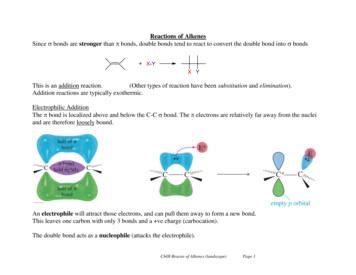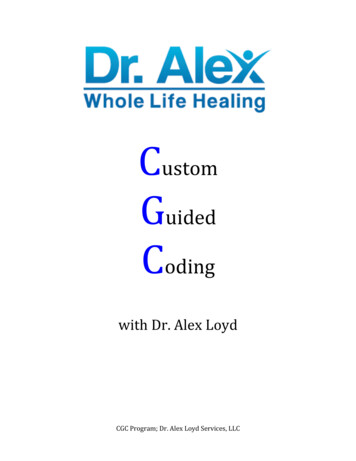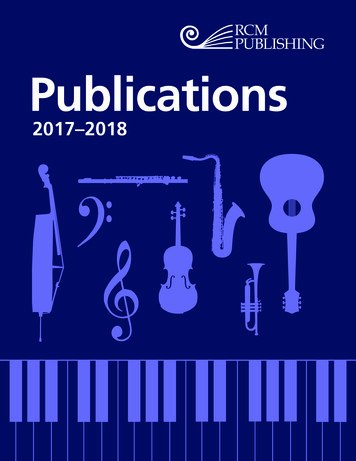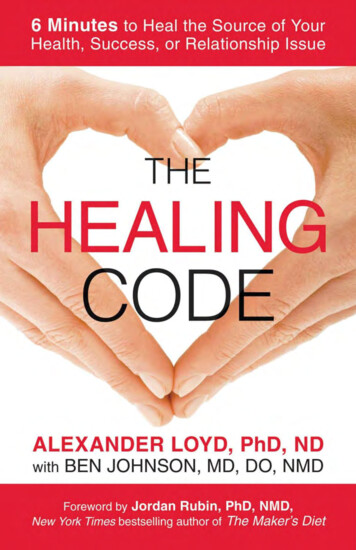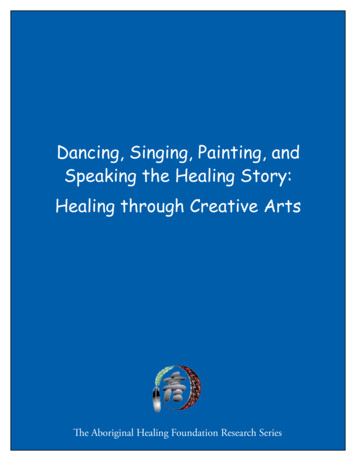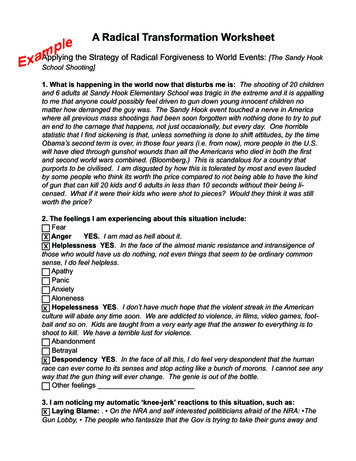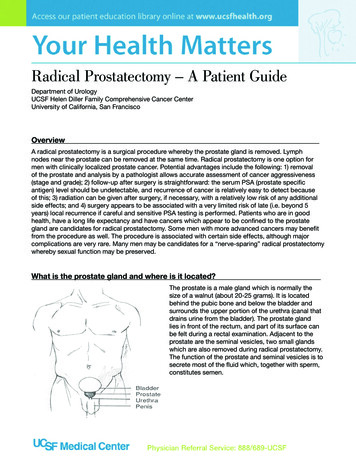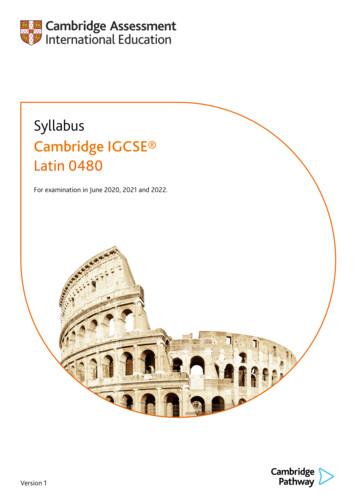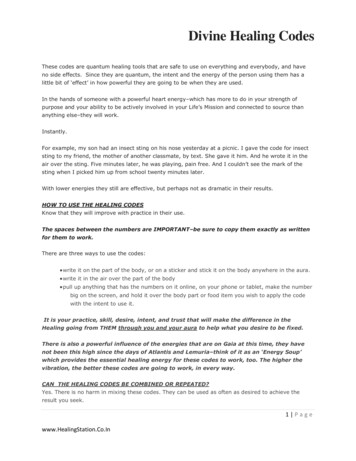![Radical Healing Syllabus[4] - School Of Social Work](/img/36/radical-healing-syllabus-2.jpg)
Transcription
Photo credit: Zila RenfroPSYCHOLOGY OFRADICAL HEALINGSYLLABUS
“It is our duty to fight for our freedom.It is our duty to win.We must love each other and support each other.We have nothing to lose but our chains."– Assata Shakur (p. 52)For centuries, People of Color and Indigenous individuals (POCIs) have resisted oppression andcontributed to freedom and democracy. Our communities are resilient and rich in strengths in the formof family, civic institutions, cultural traditions, ancestral victories, and resistance struggles. Ourstrengths inspire us to thrive despite our very own humanity being repeatedly attacked throughhistorical and contemporary acts of police brutality, draconian immigration practices, and exclusionaryschool policies. Racial and ethnic oppression along with other intersecting forms of bigotry anddiscrimination (e.g., sexism, homonegativity, transnegativity, xenophobia, Islamophobia, classexploitation) materialize in health disparities and life opportunities of POCIs. Yet, while POCIs arecollectively hurt by oppression, we are not defined by such acts of inhumanity and subjugation.The Psychology of Radical Healing Collective emerged out of a presidential initiative of the Society forthe Psychological Study of Culture, Ethnicity and Race, a Division of the American PsychologicalAssociation (APA). The purpose of the Collective is to promote healing through the active process ofstudying and practicing social justice.Radical Healing in Psychology involves being or becoming whole in the face of identity-based “wounds”or trauma (French et al., 2019). As such, radical healing incorporates strategies that address the rootcauses of identity-based wounds by building on the strengths of individuals and communities while alsoengaging in practices that promote resilience and wellbeing.As a Collective we aim to link arms with others to co-create a shift in psychology that (a) integrates astrength-based approach to healing, (b) honors cultural traditions, (c) moves beyond a focus on solelythe individual, (d) encourages critical thinking about the structures that shape the lives of people, and(c) motivates and support POCIs to take actions that celebrate life and optimize one’s sense of agency.We developed the Psychology of Radical Healing Syllabus to assist in these efforts. The syllabushighlights and pays tribute to the intellectual tradition of radical scholars, activists, and practitionersthat lay the foundation for the study of radical healing. We have included foundational texts, emergingframeworks, multimedia links, and proposed assignments designed to encourage a deeper andrevolutionary exploration of radical healing in psychological theory, research, practice, and action. Wehope faculty, community agencies, community members, and students of life adopt the syllabus as partof their journeys to build, expand, and promote a radical and decolonial healing praxis.References:French, B. H., Lewis, J. A., Mosley, D. V., Adames, H. Y., Chavez-Dueñas, N. Y., Chen, G. A., & Neville, H. A.(2019). Toward a psychological framework of radical healing in Communities of Color. The CounselingPsychologist. https://doi.org/10.1177/0011000019843506Shakur, A. (1987). Assata: An autobiography. Chicago, IL: Lawrence Hill Books.
TABLE OF CONTENTSWEEK 1WEEK 9Historical and Current SociopoliticalContextA Psychology of Radical Healing:Self KnowledgeWEEK 2WEEK 10Effects of Racism, Racial Trauma,and HealingA Psychology of Radical Healing:HopeWEEK 3WEEK 11Radical Healing in Education andSociologyWEEK 4Foundational Theories: LiberationPsychology Part IA Psychology of Radical Healing:Strength and ResistanceWEEK 12Applications for Clinical PracticeWEEK 13WEEK 5Applications for ResearchFoundational Theories: LiberationPsychology Part IIWEEK 14WEEK 6Applications for AdvocacyFoundational Theories: IntersectionalityWEEK 15WEEK 7Wrap Up, Reflection, Call to ActionA Psychology of Radical Healing:CollectivismWEEK 8A Psychology of Radical Healing:Critical ConsciousnessI. POTENTIAL ASSIGNMENTSAND ACTIVITIESII. MEET THE AUTHORS
PSYCH OF RADICAL HEALING SYLLABUSWEEK 1HISTORICAL AND CURRENTSOCIOPOLITICAL CONTEXTREADINGSRECOMMENDEDBOOKSAlexander, M. (2010). The rebirth of caste. In Thenew Jim Crow: Mass incarceration in the age ofDunbar-Ortiz, R. (2014). An indigenouscolorblindness (pp. 20-58). New York, NY: Newpeoples' history of the United States.Press.Boston, MA: Beacon Press.American Psychological Association (2017).Ledwidge, M., Verney, K., & Parmar, I.Stress in America: The state of our nation. Stress(2014). Barack Obama and the myth of ain America Survey. Retrieved frompost-racial America. New York, outledge.2017/state-nation.pdfFrench, B. H., Lewis, J. A., Mosley, D. V., Adames,H. Y., Chavez-Dueñas, N. Y., Chen, G. A., &Neville, H. A. (2019). Toward a psychologicalMULTIMEDIAframework of radical healing in Communities ofDuVernay, A., Averick, S., Barish, H.Color. The Counseling Psychologist.(Producers), & DuVernay, A. 6(2016). 13th [Motion picture]. UnitedStates: Kandoo Films.Helms J. E. (2016). An election to save Whiteheterosexual male privilege. Latina/o PsychologyAdelman, L. (Producer), Herbes-Today, 3(2), 6-7. Retrieved fromSommers, C., Strain, T. H., Smith, ducers and Directors) (2003). Race:The power of an illusion [Motion Picture].Ryan, J. (2016). ‘This is a whitelash’: Van Jones’take on the election results. CNNPolitics.Retrieved from https://www.cnn.com/politicsUnited States: California Newsreel.
PSYCH OF RADICAL HEALING SYLLABUSWEEK 2EFFECTS OF RACISM,RACIAL TRAUMA, AND HEALINGREADINGSAinslie, R. C. (2013). Intervention strategies forGreer, T. M., & Chwalisz, K. (2007). Minority-relatedaddressing collective trauma: Healing communitiesstressors and coping processes among Africanravaged by racial strife. Psychoanalysis, Culture & Society,American college students. Journal of College Student18(2), 140-152. https://doi.org/10.1057/pcs.2013.3Development, 48(4), arez, A. N., Liang, C. T. H., & Neville, H. A. (Eds.).(2016). Cultural, racial, and ethnic psychology book series.Helms, J. E., Nicolas, G., & Green, C. E. (2010). RacismThe cost of racism for people of color: Contextualizingand ethnoviolence as trauma: Enhancingexperiences of discrimination. Washington, DC, US:professional training. Traumatology, 16, 53–American Psychological Association.62. x.doi.org/10.1037/14852-000Williams, D. R., & Neighbors, H. (2001). Racism,Brondolo, E., Ng, W., Jean-Pierre, K. L., & Lane, R. (2016).discrimination and hypertension: Evidence andContextualizing the cost of racism for people of color:needed research. Ethnicity & Disease, 11(4), 800-816.Theory, research, and practice. In A. N. Alvarez, C. thndis/& H. A. Neville (Eds.), Racism and Mental Health.indexWashington, DC: American Psychological Association.Yehuda, R., Halligan, S. L., & Bierer, L. M. (2001).Brave Heart, M. Y. H. (2000). Wakiksuyapi: Carrying theRelationship of parental trauma exposure and PTSDhistorical trauma of the Lakota. Tulane Studies in Socialto PTSD, depressive and anxiety disorders inWelfare, 21, 245-266.offspring. Journal of Psychiatric Research, 35(5), 261–270. t-Davis, T., & Ocampo, C. (2005). The trauma ofracism: Implications for counseling, research, andeducation. The Counseling Psychologist, 33(4), 574-578.doi:10.1177/0011000005276581Carter, R. T. (2007). Racism and psychological andemotional injury: Recognizing and assessing race-basedMULTIMEDIAAmerican Psychological Association (2018,August 28). Racism in America [Video file].traumatic stress. The Counseling Psychologist, 35(1), 13-Retrieved from105. w.apa.org/res/about/index.aspxDuran, E., Firehammer, J., and Gonzalez, J. (2008).Butler, S. (Producer), & Butler, S. (Director)Liberation psychology as the path toward healingculturalsoul wounds. Journal of Counseling &Development, 86(3), 288-295. doi:10.1002/j.15566678.2008.tb00511.x(2014). Cracking the codes: The system of racialinequity [Motion Picture]. United States:World Trust.
PSYCH OF RADICAL HEALING SYLLABUSWEEK 3RADICAL HEALINGIN EDUCATION AND SOCIOLOGYREADINGSGinwright, S. A. (2010). Black youth rising: Activism and radical healing in urban America. NewYork, NY: Teachers College PressGinwright, S. A. (2016). Hope and healing in urban education: How urban activists andteachers are reclaiming matters of the heart. New York, NY: Routledge.MULTIMEDIA“How are we creating a pathway foryoung people in urban environments, andsuburban environments, and ruralenvironments? What are the opportunitystructures that are available in yourschool and your afterschool program toactually allow for you to walk toward thatpath to your future goal orientation?”– Shawn Ginwright, 2016 dare todisrupt! KeynoteNational Summer Learning Association. (2016, November 17). 2016 dare to disrupt!Keynote - Shawn Ginwright, Ph.D. [Video file]. Retrieved fromhttps://www.youtube.com/watch?v vXVnkZhyAdk
PSYCH OF RADICAL HEALING SYLLABUSWEEK 4FOUNDATIONAL THEORIES:LIBERATION PSYCHOLOGYPART IREADINGSComas-Diaz, L. (2007). Ethnopoliticalpsychology: Healing and transformation.In E. Aldarondo (Ed.), Advancing socialMULTIMEDIAjustice through clinical practice (pp. 91118). Mahwah, NJ: Lawrence ErlbaumAssociates Publishers.Fanon, F. (1961). The wretched of the earth.(C. Farrington, Trans.). New York, NY:Grove Press.Freire, P. (1970). Pedagogy of theoppressed. New York, NY: Herder andHerder.Martín-Baró, I. (1994). Writings for aliberation psychology. Cambridge, MA:Harvard University Press.Prilleltensky, I. (2003). Understanding,resisting, and overcoming oppression:Toward psychopolitical validity. AmericanJournal of Community Psychology, 31(1-2),195-201. doi:10.1023/A:1023043108210FriereProject (2012, April 30). PauloFreire documentary seeing throughPaulo's glasses: Political clarity,courage and humility [Video file].Retrieved fromhttps://www.youtube.com/watch?v U4jPZe-cZgcNash, M. (Producer), & Julien, I.(Director). (1995). Frantz Fanon:Black skin white masks [MotionPicture]. United Kingdom: CaliforniaNewsreel.
PSYCH OF RADICAL HEALING SYLLABUSWEEK 5FOUNDATIONAL THEORIES:LIBERATION PSYCHOLOGYPART IIREADINGSAdams, G., Dobles, I., Gómez, L. H., Kurtiş, T.,& Molina, L. E. (2015). Decolonizingpsychological science: Introduction to thespecial thematic section. Journal of Socialand Political Psychology, 3(1), , W. E., Jr., & Vandiver, B. J. (2001).Nigrescence theory and measurement:Introducing the Cross Racial Identity ScaleRECOMMENDEDBOOKSDunbar-Ortiz, R. (2014). An indigenouspeoples' history of the United States.Boston, MA: Beacon Press.Ledwidge, M., Verney, K., & Parmar, I.(2014). Barack Obama and the myth of apost-racial America. New York, NY:Routledge.(CRIS). In J. G. Ponterotto, J. M. Casas, L. A.Suzuki, & C. M. Alexander (Eds.), Handbook ofmulticultural counseling (2nd ed., pp. 371–393). Thousand Oaks, CA: SAGE Publications,Inc.Thompson, C. E., & Alfred, D. M. (2009).Black liberation psychology and practice. InH. A. Neville, B. M. Tynes, & S. O. Utsey(Eds.), Handbook of African AmericanPsychology (pp. 483–494). Thousand Oaks,CA: SAGE Publications.White. J. L. (1970, September). Toward aBlack psychology. Ebony Magazine, 25(11),44-52.MULTIMEDIADuVernay, A., Averick, S., Barish, H.(Producers), & DuVernay, A. (Director).(2016). 13th [Motion picture]. UnitedStates: Kandoo Films.Adelman, L. (Producer), HerbesSommers, C., Strain, T. H., Smith, L.(Producers and Directors) (2003). Race:The power of an illusion [Motion Picture].United States: California Newsreel.
PSYCH OF RADICAL HEALING SYLLABUSWEEK 6FOUNDATIONAL THEORIES:INTERSECTIONALITYREADINGSMULTIMEDIACole, E. R. (2009). Intersectionality and research inpsychology. American Psychologist, 64(3), 170–180.doi:10.1037/a0014564Collins, P. H. (2000). Black feminist thought:Knowledge, consciousness, and the politics ofempowerment (2nd ed.). New York, NY: Routledge.Collins, P. H., & Bilge, S. (2016). Intersectionality.Cambridge, UK: Polity Press.Combahee River Collective. (1995). Combahee RiverCollective statement. In B. Guy-Sheftall (Ed.), WordsCrenshaw, K. (2016, October).of fire: An anthology of African American feministKimberlé Crenshaw: The urgency ofthought (pp. 232–240). New York: New Press.intersectionality [Video file]. Retrieved(Original work published 1977)fromhttps://www.ted.com/talks/kimberle cCrenshaw, K. W. (1989). Demarginalizing therenshaw the urgency of intersectionintersection of race and sex: A Black feminist critiqueality?language enof antidiscrimination doctrine, feminist theory, andantiracist politics. University of Chicago Legal Forum,Crenshaw, K. (Host), & Sharpe Levine,1989, 139–167.J. (Producer). Intersectionality matters!Podcast retrieved fromHancock, A. M. (2016). Intersectionality: l history. New York, NY: Oxford atters-2May, V. M. (2015). Pursuing intersectionality, unsettlingdominant imaginaries. New York, NY: Routledge.
PSYCH OF RADICAL HEALING SYLLABUSWEEK 7A PSYCHOLOGY OF RADICALHEALING: COLLECTIVISMREADINGSMULTIMEDIABattle, M. (1997). Reconciliation: The Ubuntutheology of Desmond Tutu. Cleveland, OH:Pilgrim Press.Houska, T. (2018, April). Tara Houska: TheStanding Rock resistance and our fight forindigenous rights. [Video file]. Retrieved from:Hodge, D., Limb, G., & Cross, T. (2009).https://www.ted.com/talks/tara houska the stMoving from colonization toward balanceanding rock resistance and our fight for indiand harmony: A Native Americangenous rights?language enperspective on wellness. Social Work, ohnson, J. H., Jr., & Oliver, M. L. (2013).Interethnic minority conflict in urbanReadings on interethnic conflict:America: The effects of economic and socialJones-Correa, M. (Ed.). 2005. Governingdislocations. Urban Geography, 10(5), 449-American cities: Inter-ethnic coalitions,463. doi:10.2747/0272-3638.10.5.449competition, and conflict. New York, NY: RussellSage Foundation.Triandis, H. C., Bontempo, R., Villareal, M. J.,Asai, M., & Lucca, N. (1988). IndividualismNagda, B. R. A., & Zúñiga, X. (2003). Fosteringand collectivism: Cross-culturalmeaningful racial engagement throughperspectives on self-ingroup relations.intergroup dialogues. Group Processes &Journal of Personality and Social Psychology,Intergroup Relations, 6(1), 111–128.54(2), http://dx.doi.org/10.1037/0022-53514.54.2.323
PSYCH OF RADICAL HEALING SYLLABUSWEEK 8A PSYCHOLOGY OF RADICALHEALING: CRITICALCONSCIOUSNESSREADINGSFreire, P. (1970). Pedagogy of the oppressed. New York, NY: Herder and Herder.Liu, W. M., Liu, R. Z., Garrison, Y. L., Kim, J. Y. C., Chan, L., Ho, Y. C. S., & Yeung, C. W. (2019). Racialtrauma, microaggressions, and becoming racially innocuous: The role of acculturation and Whitesupremacist ideology. American Psychologist, 74(1), 143-155. doi:10.1037/amp0000368Prilleltensky, I. (2003). Understanding, resisting, and overcoming oppression: Towardpsychopolitical validity. American Journal of Community Psychology, 31(1-2), 195-201.doi:10.1023/A:1023043108210Watts, R. J., Abdul-Adil, J. K., & Pratt, T. (2002). Enhancing critical consciousness in young AfricanAmerican men: A psychoeducational approach. Psychology of Men & Masculinity, 3(1), 41-50.Watts, R. J., Diemer, M. A., & Voight, A. M. (2011). Critical consciousness: Current status and futuredirections. New Directions for Child & Adolescent Development, 2011(134), 43-57. doi:10.1002/cd.310MULTIMEDIAGrellety, R., Peck, H. (Producers),& Peck, R. (Producer andDirector). (2017). I am not yourNegro [Motion Picture] UnitedStates: Magnolia Pictures andAmazon Studios.
PSYCH OF RADICAL HEALING SYLLABUSWEEK 9A PSYCHOLOGY OF RADICALHEALING: SELF KNOWLEDGEREADINGSHodge, D. R., Limb, G. E., & Cross, T. L.RECOMMENDEDBOOK(2009). Moving from colonization towardMoodley, R., & West, W. (Eds.). (2005).balance and harmony: A Native AmericanIntegrating traditional healing practices intoperspective on wellness. Social Work, 54(3),counseling and psychotherapy. Thousand211-219.Oaks, CA: SAGE rham, T. A. (2009). Foundations for anAfrican American psychology: Extendingroots to an ancient Kemetic past. In H.MULTIMEDIANeville, C. Tynes, & S. Utsey, (Eds.),Handbook of African American Psychology.Wide Angle Studios (2011, August 11). CultureThousand Oaks, CA: SAGE Publications.matters: Indigenous perspectives on behavioralhealth care [Video file]. Retrieved fromQuintana, S. M., Chew, A., & Schell, G. (2012).https://www.youtube.com/watch?v yfdCaFEls cCounseling psychology theory and researchon race and ethnicity: Implications for apsychological science of diversity. In N. A.Fouad, J. A. Carter, & L. M. Subich (Eds.), APAHandbook of counseling psychology (Vol. 1).Washington, DC: American PsychologicalAssociation.“Knowledge of culture influences whenand how people seek help, who theywant help from, how long they stay intreatment, and how they renew theircultural self as a way to heal.”– Holly Echo-Hawk, Culture matters:Indigenous perspectives onbehavioral health care
PSYCH OF RADICAL HEALING SYLLABUSWEEK 10A PSYCHOLOGY OF RADICALHEALING: HOPEREADINGSMULTIMEDIADiaz, J. (2016, November 21). Under PresidentTippett, K. (Host) & Percy Ruíz, L. M.Trump, radical hope is our best weapon. The(Producer). (2017, September 14). JunotNew Yorker. Retrieved fromDiaz: Radical hope is our best weapon.https://www.newyorker.com/On Being Podcast with Krista Tippett.Podcast retrieved fromNewman, J. (2014). Radical hope–surprising will.Settler Colonial Studies, 4(4), ope-is-our-best-weaponsep2017/Gundavaram, T. (2017, February 26).Swanson, D. M. (2015). Ubuntu, radical hope,Against racism. [Video file]. Retrievedand an onto-epistemology of conscience.from https://www.youtube.com/watch?Journal of Critical Southern Studies, 3, 96-118.v 9CbKjNWS864RECOMMENDEDBOOKSDe Robertis, C. (Ed.). (2017). Radical hope: Lettersof love and dissent in dangerous times. New York,NY: Vintage Books.Friere, P. (1992). Pedagogy of hope. New York, NY:Bloomsbury Publishing.McKesson, D. (2018). On the other side of freedom:The case for hope. New York, NY: Viking.The mother in me asks, what if? What ifthis darkness is not the darkness of thetomb but the darkness of the womb?What if our America is not dead but acountry that is waiting to be born? Whatif the story of America is one long labor?What if all of our grandfathers andgrandmothers are standing behind usnow? Those who survived occupation andgenocide, slavery and Jim Crow,detentions and political assault. What ifthey are whispering in our ear today,tonight, “you are brave.” what if this isour nation’s great transition?– Valarie Kaur, Against Racism
PSYCH OF RADICAL HEALING SYLLABUSWEEK 11A PSYCHOLOGY OF RADICALHEALING: STRENGTH ANDRESISTANCEREADINGSChavez-Dueñas, N. Y., Adames, H. Y., Perez-Chavez, J. G. & Salas, S. P. (2019). Healing ethnoracial trauma in Latinx immigrant communities: Cultivating hope, resistance, and action.American Psychologist, 74(1), 49-62. http://dx.doi.org/10.1037/amp0000289Klar, M., & Kasser, T. (2009). Some benefits of being an activist: Measuring activism and its rolein psychological well-being. Political Psychology, 30(5), 755-777. doi:10.1111/j.14679221.2009.00724.xThomas, E. F., & Louis, W. R. (2013). Doing democracy: The social psychological mobilizationand consequences of collective action. Social Issues & Policy Review, 7(1), EDIAAPA RESilience Initiative.Retrieved fromhttps://www.apa.org/res/about/index.aspx
PSYCH OF RADICAL HEALING SYLLABUSWEEK 12APPLICATIONS FOR CLINICALPRACTICEREADINGSAdames, H. Y., Chavez-Dueñas, N. Y., Sharma, S., & LaRoche, M. J. (2018). Intersectionality inpsychotherapy: The experiences of an AfroLatinxqueer immigrant. Psychotherapy, 55(1), 73-79.doi:10.1037/pst0000152Gone, J. P. (2004). Mental health services for NativeAmericans in the 21st century United States.Professional Psychology: Research and Practice, 35(1),10-18. http://dx.doi.org/10.1037/0735-7028.35.1.10Grills, C. N., Aird, E. G., & Rowe, D. (2016). Breathe,baby, breathe: Clearing the way for the emotionalemancipation of Black people. Journal of CulturalStudies and Critical Methodologies. 16(3), Sue, D. W., Capodilupo, C. M., Torino, G. C., Bucceri, J.M., Holder, A. M. B., Nadal, K. L., & Esquilin, M. (2007).Racial microaggressions in everyday life: Implicationsfor clinical practice. American Psychologist, 62(4), 271286. doi:10.1037/0003-066X.62.4.271Vasquez, M. J. T. (2013). Ethics for a diverse world. InJ. Frew, & M. D. Spiegler (Eds.), Contemporarypsychotherapies for a diverse world (pp. 19-38). NewYork, NY: Routledge/Taylor & Francis Group.RECOMMENDED READINGSAdames, H. Y., & Chavez-Dueñas, N. Y. (2017).Cultural foundations and interventions in Latino/amental health: History, theory, and within groupdifferences. New York, NY: Routledge/Taylor &Francis Group.Bryant-Davis, T., & Comas-Díaz, L. (Eds.). (2016).Womanist and mujerista psychologies: Voices offire, acts of courage. Washington, DC: AmericanPsychological Association.MULTIMEDIAThe Psychology of Radical HealingCollective [Healing Through Social Justice].(2019, February 18). Community basedhealing practices healing through socialjustice [Video file]. Retrieved fromhttps://www.youtube.com/watch?v uqZBwWjbMg“I think about the embodiment of fear in aperson's heart rate, in their stomach, intheir silence. If there is a wish that I have,it is that we do more practices ofembodiment and recognize that sometimesbefore your mind even can come up withcoherent thoughts, people have bodies thatare responding to conversations that feelthreatening to them."– Dr. Consuelo Cavalieri, CommunityBased Practices Webinar
PSYCH OF RADICAL HEALING SYLLABUSWEEK 13APPLICATIONS FOR RESEARCHREADINGSAwad, G. H., & Cokley, K. O. (2010). Designingand interpreting quantitative research inmulticultural counseling. In J. G. Ponterotto, J.MULTIMEDIAM. Casas, L. A. Suzuki, & C. M. Alexander (Eds.),Handbook of multicultural counseling (3rd ed.).The Psychology of Radical HealingThousand Oaks, CA: SAGE Publications.Collective [Healing Through SocialJustice]. (2019, February 18). RadicalCole, E. R. (2009). Intersectionality andresearch webinar - Healing throughresearch in psychology. American Psychologist,social justice initiative [Video file].64(3), 170–180. doi:10.1037/a0014564Retrieved fromhttps://www.youtube.com/watch?Lewis, J. A., & Grzanka, P. R. (2016). Applyingv zpj3jirosBkintersectionality theory to research onperceived racism. In A. N. Alvarez, C. T. H.Liang, & H. A. Neville (Eds.), Cultural, racial, andethnic psychology book series. The cost ofracism for people of color: Contextualizingexperiences of discrimination (pp. 31-54).Washington, DC, US: American PsychologicalAssociation. http://dx.doi.org/10.1037/14852003.Smith, L. T. (2012). Decolonizingmethodologies: Research and indigenous peoples(2nd ed.). New York, NY: Palgrave Macmillan.“When I was thinking about what areacould I intervene on the individual level Iwas thinking about coping strategies. Andwhen I think about what area I couldintervene on the systemic level, its antiracism work. So I see that as the next stepin this process.”– Dr. Candice Hargons, RadicalResearch Webinar
PSYCH OF RADICAL HEALING SYLLABUSWEEK 14APPLICATIONS FOR ADVOCACYREADINGSRatts, M. J. (2011). Social justice counseling: Toward the development of a fifth force amongcounseling paradigms. Journal Of Humanistic Counseling, Education & Development, 48(2), b00076.xToporek, R. L., Gerstein, L. H., Fouad, N. A., Roysircar, G., & Israel, T. (Eds.). (2006). Handbook forsocial justice in counseling psychology. Thousand Oaks, CA: SAGE Publications.Toporek, R. L., Lewis, J. A., & Crethar, H. C. (2009). Promoting systemic change through the ACAAdvocacy Competencies. Journal of Counseling & Development, 87(3), -6678.2009.tb00105.xVera, E. M., & Speight, S. L. (2007). Advocacy, outreach, and prevention: Integrating social actionroles in professional training In E. Aldarondo (Ed.), Advancing social justice through clinical practice(pp. 373-389) Mahwah, NJ: Lawrence Erlbaum Associates Publishers.MULTIMEDIACounseling Psychology Division of the AmericanPsychological Association.[D17CounselingPsych]. (2017, May 31). Applyingpsychology to policy and advocacy [Video file].Retrieved from https://www.youtube.com/watch?v O5qzu4r3egsAPA Science Advocacy Toolkit (nd). Retrievedfrom http://advocacy.apascience.org/
PSYCH OF RADICAL HEALING SYLLABUSWEEK 15WRAP UP, REFLECTION, CALL TOACTIONREADINGCounseling Psychology Division of the American Psychological Association. [D17CounselingPsych].(2017, February 19). CP's for peace and action: Putting SJ theory and research into practice [Videofile]. Retrieved from https://www.youtube.com/watch?v 8pO2D4WXO 0&index 17&list PL 4VxOV2vmnzrCGmivQi9DOgSwwxAr75F“Pay attention. You don’t get to quit. Youdon’t get to bow out. You don’t get topretend it’s not happening. It ishappening. And there’s a lot of folks whocan’t pretend.”Dr. Evelyn Hunter, CP's for peace and action:Putting SJ theory and research into practice
PSYCH OF RADICAL HEALING SYLLABUSPOTENTIAL ASSIGNMENTSAND ACTIVITIESSOCIOCULTURAL AUTOBIOGRAPHY:(due by week 3) .Students reflect on racial identities and socialization around healing:White folks in connection to Whiteness and White supremacy, POCI in connection toracialization and cultural originsWEEKLY CRITICAL REFLECTION PAPERS:To promote critical engagement with the readings and enriched discussions,individuals may complete critical self-reflection papers in response to the readingsfor each week.SOCIAL JUSTICE ADVOCACY PROJECT:Collaboratively partner with a community agency that serves the needs of POCI communities,assess the needs of the agency, develop a systems-level intervention to address identifiedneeds, evaluate the intervention, and work to empower those from the agency as theycontinue in their efforts to promote radical healing. This project will help individuals developskills in working as a collaborative consultant/partner with agencies and communities andengage in advocacy to promote radical healing.CONSCIOUSNESS-RAISING PRESENTATION:Develop a 10 – 15 minute talk for a general community audience, similar to a Ted talk. Thepurpose of the presentation will be to educate others about a particular issue faced by POCIcommunities, highlight the benefits of radical healing practices, and provide a call to action.SOCIAL MEDIA CAMPAIGN:Conduct a Twitter, Facebook, or Instagram campaign to engage the broader public inconversation about radical healing
PSYCH OF RADICAL HEALING SYLLABUSPOTENTIAL ASSIGNMENTS AND ACTIVITIESOP. ED.:Write a letter to the editor about a topic related to Radical Healing to bring these concepts to awider audience.ADVOCACY BRIEF:Write advocacy statements for social justice. Identify a political issue that impacts mental healthand/or mental health services. Research the relevant policies (e.g., bills, laws, executive orders)in place at national and/or state levels. Review the research citing mental health implications ofthis policy and reflect on why you chose this particular issue to advocate for. Finally, in additionto the background research you conduct, write one-page advocacy briefs for lawmakers thatsummarizes the importance of the issue, why it’s important to vote (or repeal) the act/bill/law,relevant research pertaining mental health issues, and a personal story to highlight this.LOCAL SITE VISITS:Partner with local community sites to bear witness to real-life practices of culturallyspecific healing methods.Some examples used by Dr. Bryana French at the University of St. Thomasin Minnesota included:Indian Health BoardWilder Center’s Center for Social HealingCatholic CharitiesKente CircleHOW TO CITE THIS SYLLABUS:French, B. H., Lewis, J. A., Mosley, D. V., Adames, H. Y., Chavez-Dueñas, N. Y., Chen, G.A., Neville, H. A., & Adam, A. (2019). Psychology of radical healing syllabus.HOW TO FINDTHE PSYCHOLOGY OF RADICAL HEALING COLLECTIVE:Healing Through Social Justice Psychology TodayHealing Through Social Justice Youtube
MEET THE AUTHORSHECTOR Y. ADAMES , Psy.D., is a clinical psychologist and an associateprofessor of counseling psychology at The Chicago School of ProfessionalPsychology. He co-founded and co-directs the Immigration, Critical Race, AndCultural Equity Lab (IC-RACE Lab). His scholarship focuses on colorism, racism,and Latinx psychology.NAYELI Y. CHAVEZ-DUEÑAS, Ph.D., is a clinical psychologist and an associateprofessor of counseling psychology at The Chicago School of ProfessionalPsychology. Her scholarship focuses on race, racism, and Latinx psychology.GRACE A. CHEN , Ph.D., is a licensed psychologist in independent practice inMenlo Park, CA. Her clinical practice includes individual psychotherapy and supportgroup facilitation. She also provides advising in clinical training and professionaldevelopment for psychology doctoral students as a consultant. Her scholarship andservice activities have focused on marginalized populations, mentorship, andprofessional development.BRYANA H. FRENCH, Ph.D., L.P., is a counseling
Radical Healing in Psychology involves being or becoming whole in the face of identity-based "wounds" . Cracking the codes: The system of racial inequity [Motion Picture]. United States: World Trust. PSYCH OF RADICAL HEALING SYLLABUS. Ginwright, S. A. (2010). Black youth rising: Activism and radical healing in urban America.


